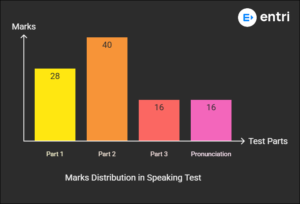Table of Contents
Introduction
Reaching the German B1 level is a key milestone in your language journey. At this stage, you are considered an independent speaker who can express ideas, share personal experiences, and engage in conversations on everyday topics. The B1 exam plays an important role in proving your German proficiency, and one of its most crucial parts is the speaking test (Sprechen). For many learners, this part can feel challenging, but with the right preparation and practice, it becomes a chance to showcase your skills with confidence.
Check out this video by Entri in Malayalam!
In this article, we’ll explore some of the most common B1 speaking topics and walk you through the German B1 Sprechen test format, along with tips to avoid mistakes and perform at your best.
German B1 Sprechen (Speaking Exam)
1: How do you say "Good Morning" in German?
The speaking section of the German B1 exam is designed to test your ability to communicate effectively in real-life situations. It lasts about 15 minutes and is usually conducted with another candidate. The tasks cover interactive scenarios that reflect practical communication skills.
|
Goethe 2026 Exam Dates: Multiple Centers |
|
| Trivandrum Goethe Exam Dates | Kochi Goethe Exam Dates |
| Chennai Goethe Exam Dates | Coimbatore Goethe Exam Dates |
Structure of the B1 Speaking Exam:
-
Part 1 – Planning Together (ca. 3 minutes | 28 marks)
-
You and your partner receive a situation where you must plan an event together (e.g., organizing a trip, birthday party, or project).
-
You will discuss ideas, make suggestions, and come to an agreement.
-
This tests your ability to negotiate, propose, and agree politely.
-
-
Part 2 – Presentation (ca. 3 minutes | 40 marks)
-
You choose one of two given topics and give a short presentation.
-
The presentation should include an introduction, main points, and conclusion.
-
Example topics: sports, hobbies, job goals, daily lifestyle, media.
-
Clear structure, logical arguments, and vocabulary variety are important here.
-
-
Part 3 – Question and Answer (ca. 3–4 minutes | 16 marks)
-
After your partner’s presentation, you need to ask them a question and also answer when they ask you back.
-
This evaluates your ability to interact spontaneously.
-
-
Pronunciation and Fluency (16 marks)
-
Apart from content, you are evaluated on clear pronunciation, rhythm, and fluency of speech.
-
📌 Tips for Sprechen Success:
-
Practice with friends or partners to simulate exam conditions.
-
Use connectors (außerdem, deshalb, jedoch) to make your sentences sound natural.
-
Avoid overusing fillers like “Ähm” or “Also.” Short pauses are okay—take a breath and continue.
-
Keep your answers simple, structured, and clear. Quality matters more than complexity.
Click here to join the Entri online German language course! Watch demo classes here!
Free German A1 Mock Tests – Powered by AI!
Test your skills on our interactive platform. Get instant feedback from our AI to help you communicate better and track your progress. Start your free German mock test now.
Test Your German A1 for FreeWhat is German B1?
German B1 level is the third level in the Common European Framework of Reference (CEFR) for foreign languages. It is the level ahead of A1 and A2. This level signifies that the person has an intermediate language proficiency, where learners can comfortably express themselves in everyday situations.
At this level, one will have a vocabulary of around 2,400 words. It boosts communication skills and helps attain a deeper cultural understanding. Attaining this stage opens the door to various opportunities in the field of education and boosts job opportunities.
Once you complete this level, you will be able to give short explanations and talk about experiences and events with confidence.
German B1 Speaking Test Format
The speaking test is conducted in three parts. The total time will be fifteen minutes. You will be given three different scenarios and fifteen minutes to prepare. You can make notes during this time and carry them with you, but while speaking, you have to do it freely.
The speaking part is for 100 marks. The three parts are as follows:
Part 1 (28 marks): You will be given a situation, and based on that, you have to plan an event with your partner. For the planning, you have around 3 minutes.
Part 2 (40 marks): You will be given 2 topics and have to present one of them. The presentation should be for almost 3 minutes.
Part 3 (16 marks): This involves asking a question to your partner. The question should be regarding the presentation.
Apart from the above-mentioned marks, 16 Marks is allotted for pronunciation
Explore our free German language learning materials now!
The best way to prepare for the speaking test is to practice speaking. You can speak to your friends, in front of a mirror or practice the imitation technique. You can also record yourself speaking. This will help you understand your flaws and work on it.
Also read: Best German Grammar Books for Learning Possessive Pronouns
Common Mistakes to Avoid
When preparing, it is easy to stumble across some hurdles that may slow your pace. Avoiding these hurdles will definitely help you to feel more confident and relaxed in your endeavours. Here are some of the obstacles that you want to avoid:
-
Overcomplicating Your Answers
Save this somewhere: It is essential to focus on clarity and structure rather than complexity. To impress the examiner, you might feel like incorporating complex vocabulary, but it may have the opposite effect as well. Though we cannot rule out the fact that this process is a good challenge to yourself, you may end up making your answer difficult to understand.
-
Fast and furious
Another common mistake is being too fast while speaking, whether to get it over with or due to nervousness. You may even think that it makes you seem fluent; however, there is a higher chance of making mistakes in pronunciation and make your speech hard to understand.
|
German A2 Exercises – Download Free PDF |
||
-
Lack’structure’
Imagine you get a comfortable topic and you are sure about the answer. Unfortunately, you weren’t able to present it in a structure that is easy to understand. This is a common mistake that happens to aspirants. It always helps to have an introduction, body, and conclusion to get the most out of your answer.
-
Overuse of fillers
Have you ever watched an episode of a good series that has just filler content and does not add value to the main plot? Frustrating, right?! Well, it is the same when you use fillers like “Ähm” (um), “Also” (so), or “Wie soll ich sagen?” (How should I say?) while speaking. These will create a negative impact, especially the overuse of them.
Also read: German Sentence Structure
Free German A1 Mock Tests – Powered by AI!
Test your skills on our interactive platform. Get instant feedback from our AI to help you communicate better and track your progress. Start your free German mock test now.
Test Your German A1 for FreeFinal Thoughts….
We have given you a list of topics. Choose those topics and practice speaking on various questions based on that topic. Getting the help of trained and experienced professionals will help you approach the test with confidence.
The app offers live and recorded classes with experienced and certified faculty. You also get Goethe exam assistance and a pre-Goethe mock test. We also provide personalized feedback and in-app assistance, which helps students identify their strengths and weaknesses.
The salient features of our German course are:
- Live interactive classes
- Recorded classes after live sessions
- PDF notes and assignments
- Local language tutor
- Goethe Test assistance and mock test
| German Language Courses | |
| German Language A1 Course Online Coaching | German Language A2 Course |
| German Language B1 Course online Coaching | German Language B2 Course Online Coaching |
Free German A1 Mock Tests – Powered by AI!
Test your skills on our interactive platform. Get instant feedback from our AI to help you communicate better and track your progress. Start your free German mock test now.
Test Your German A1 for FreeFrequently Asked Questions
What is the B1 level in German?
The B1 level in German is an intermediate level as per the Common European Framework of Reference (CEFR). It indicates that the learner can comfortably communicate in everyday situations, express opinions, give instructions, and talk about experiences. At this level, learners know around 2,400 words and have a deeper understanding of the language.
What are the key topics for the German B1 speaking test?
Some of the common topics include:
-
Cookery and Recipes
-
Communication
-
Personal Hygiene
-
Education
-
Social Media and Internet Trends
-
Health and Self-Care
-
Entertainment
-
Personal Goals
-
Outdoor Activities
-
Sports and Physical Activities
-
Current Affairs
-
Fashion and Clothing
-
Environment
-
Foreign Languages
What is the format of the German B1 speaking test?
The B1 speaking test consists of three parts:
-
Part 1 (28 marks): Plan an event with a partner based on a situation (3 minutes of preparation).
-
Part 2 (40 marks): Present one of two topics for about 3 minutes.
-
Part 3 (16 marks): Ask your partner a question related to the presentation.
Additionally, pronunciation is marked out of 16 points.
How can I prepare for the B1 speaking test?
To prepare effectively, focus on:
-
Practicing speaking with friends or in front of a mirror.
-
Recording yourself to evaluate and improve your speaking skills.
-
Avoiding overcomplicated answers; focus on clarity.
-
Structuring your answers (Introduction, body, and conclusion).
-
Limiting the use of filler words like “Ähm” or “Also.”
How many sub-levels are there in the German B1 level?
The B1 level is divided into three sub-levels: B1.1, B1.2, and B1.3. As you progress through each sub-level, you’ll see improvement in your vocabulary, grammar, and communication skills.
How long is the German B1 speaking test?
The total time for the speaking test is 15 minutes, which includes preparation time and speaking with your partner.
What are some common mistakes to avoid during the B1 speaking test?
-
Overcomplicating answers: Stick to clear, structured responses.
-
Speaking too fast: Focus on speaking clearly, even if it takes a bit longer.
-
Lack of structure: Ensure your answers are organized (Introduction, body, conclusion).
-
Overuse of fillers: Avoid excessive use of words like “Ähm” or “Also.”
How can I practice my German speaking skills?
-
Language exchange: Find a language partner to converse with regularly.
-
Record and review: Record your answers and listen to identify areas of improvement.
-
Use apps and online platforms: Engage with online resources like Entri to practice and get feedback.
Is it necessary to attend a formal course for German B1 preparation?
While self-study is possible, a structured course can significantly improve your preparation. Platforms like Entri provide live interactive classes, recorded sessions, mock tests, and personalized feedback to help you succeed in the B1 exam.














